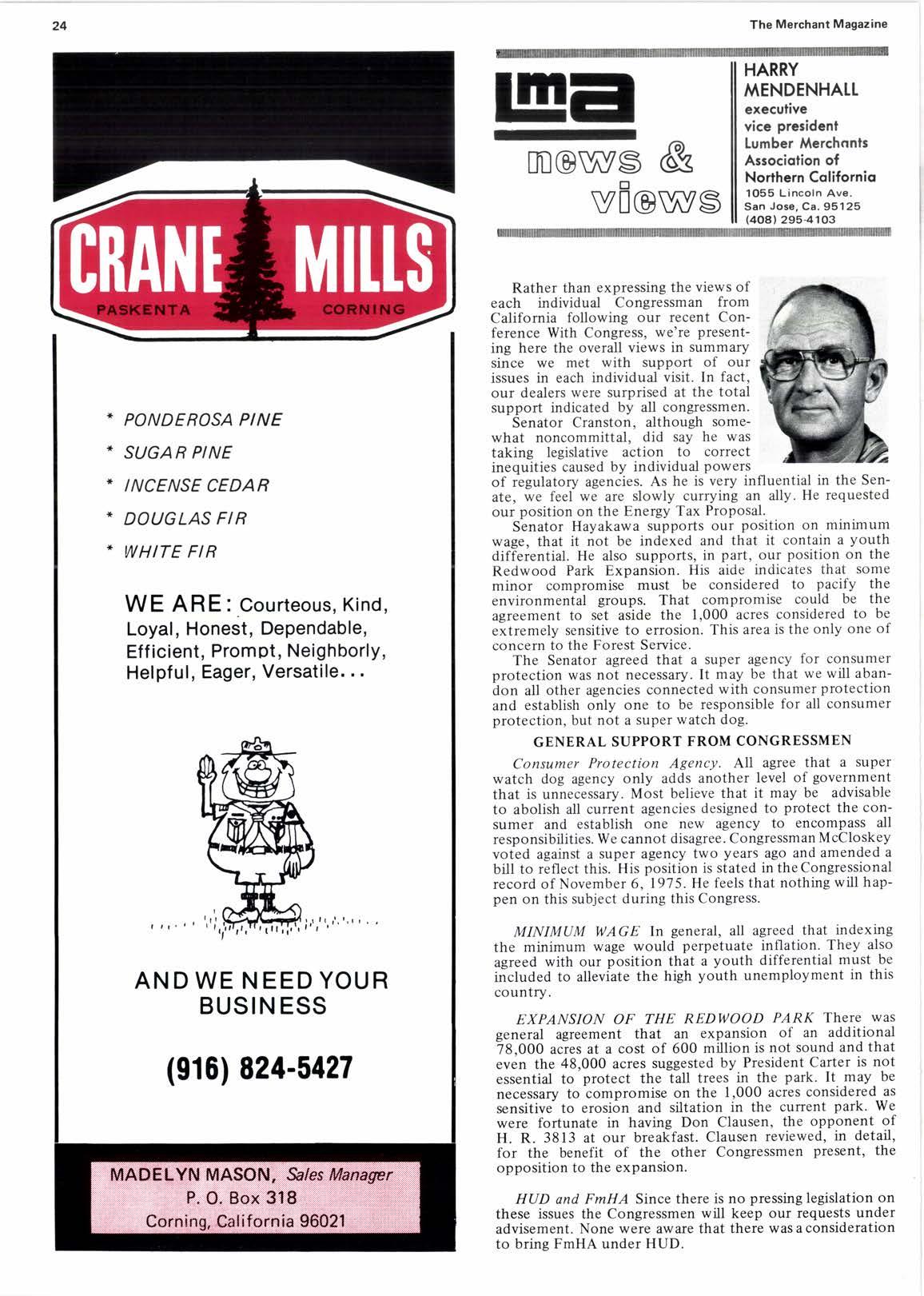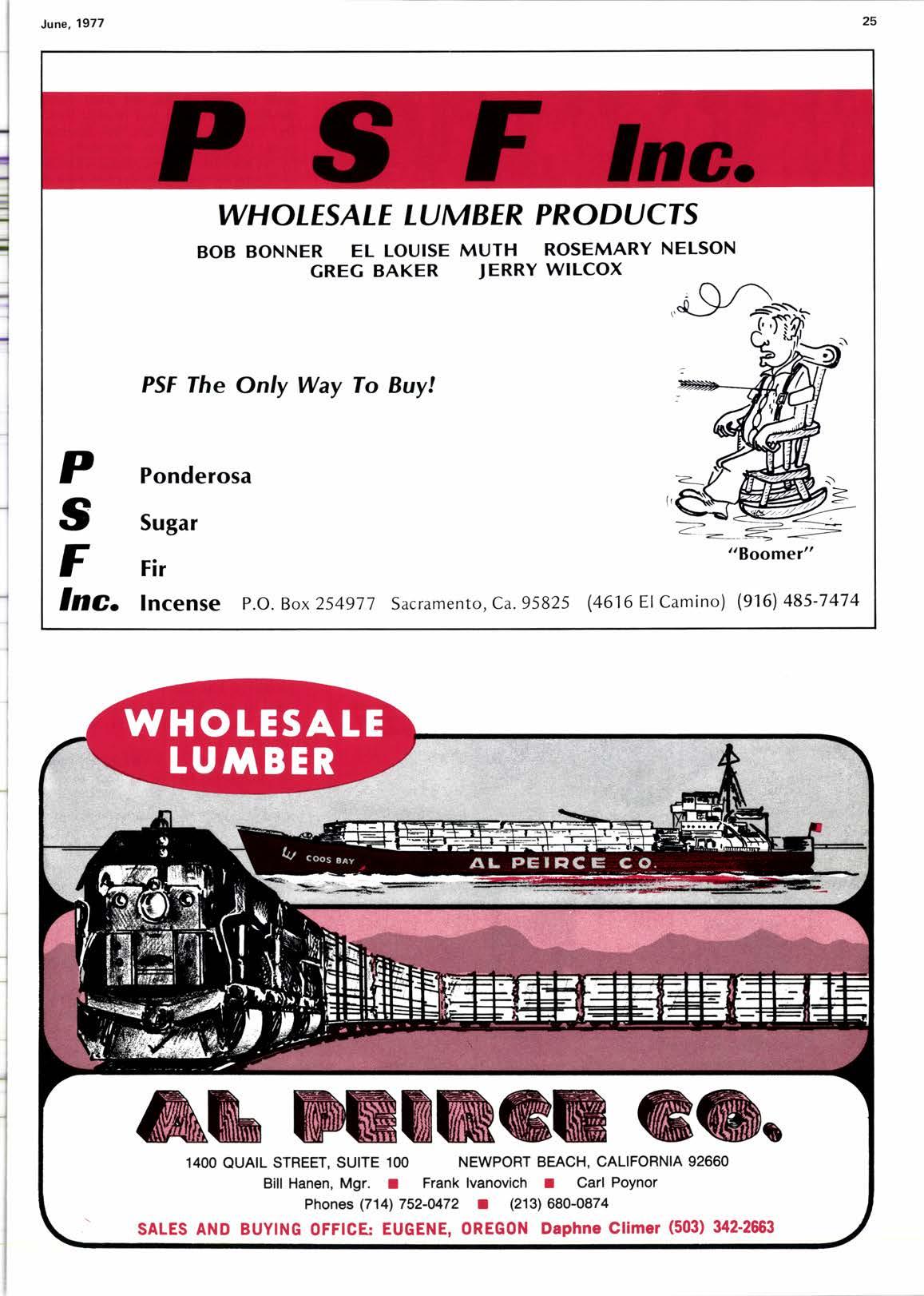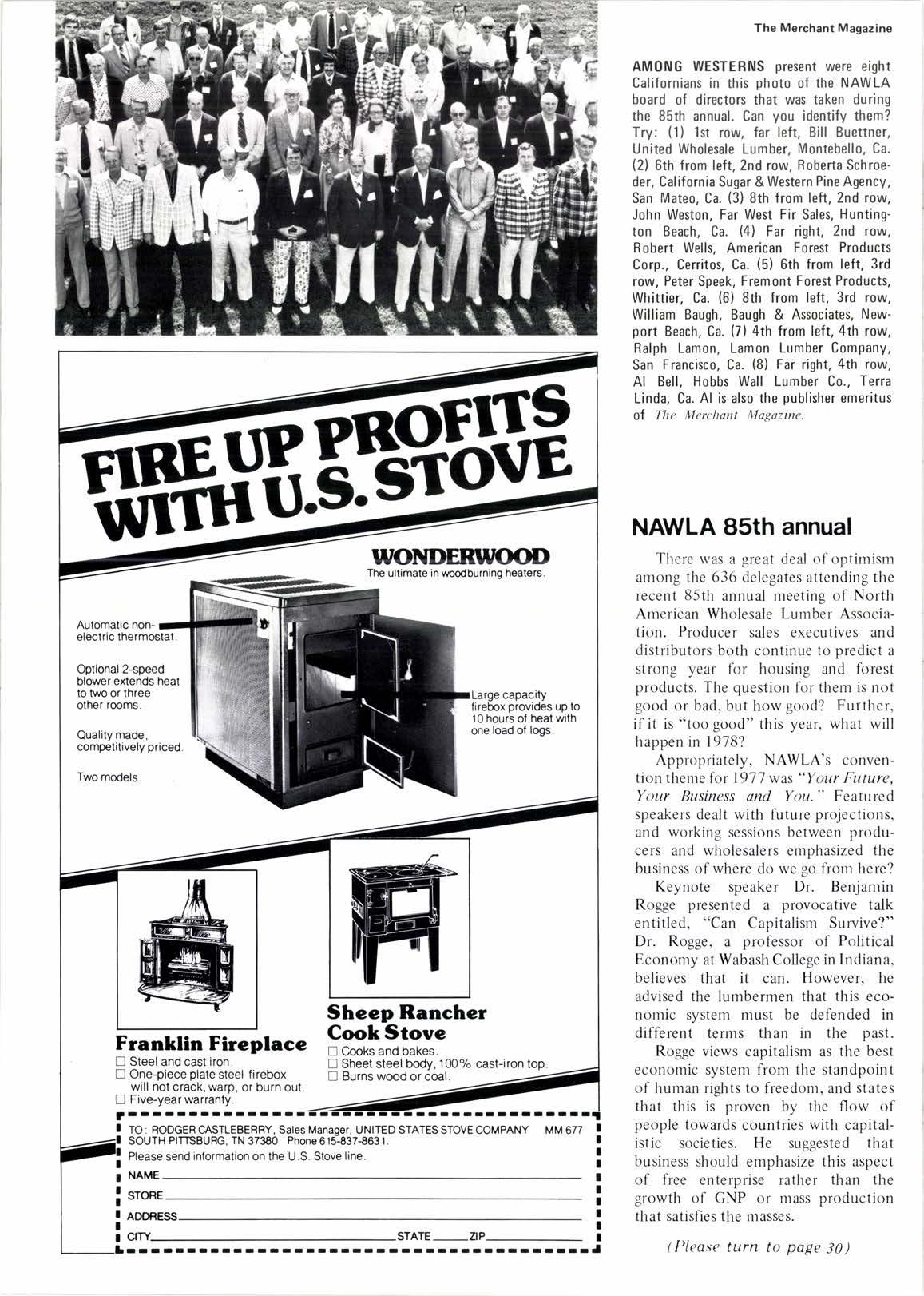
3 minute read
NEEDYOUR
(916) 824-5427
Rather than expressing the views of each individual Congressman from California following our recent Conference With Congress, we're presenting here the overall views in summary since we met with support of our issues in each individual visit. In fact, our dealers were surprised at the total support indicated by all congressmen.
Senator Cranston, although somewhat noncommittal, did say he was taking legislative action to correct inequities caused by individual powers of rigulatory agencies. As he is very influential in the Senate, we feel we are slowly currying an ally. He requested our position on the Energy Tax Proposal.
Senator Hayakawa supports our position on minimum wage, that it not be indexed and that it contain a youth differential. He also supports, in part, our position on the Redwood Park Expansion. His aide indicates that some minor compromise must be considered to pacify the environmental groups. That compromise could be the agreement to set aside the 1,000 acres considered to be extremely sensitive to errosion. This area is the only one of concern to the Forest Service.
The Senator agreed that a super agency for consumer protection was not necessary. It may be that we will abandon all other agencies connected with consumer protection and establish only one to be responsible for all consumer protection, but not a super watch dog.
General Support From Congressmen
Consumer Protection Agency. All agree that a super watch dog agency only adds another level of government that is unnecessary. Most believe that it may be advisable to abolish all current agencies designed to protect the consumer and establish one new agency to encompass all responsibilities. We cannot disagree. Congressman McCloskey voted against a super agency two years ago and amended a bill to reflect this. His position is stated intheCongressional record of November 6, 197 5 He feels that nothing will happen on this subject during this Congress.
MINIMUM I|AGE In general, all agreed that indexing the minimum wage would perpetuate inflation. They also agreed with our position that a youth differential must be included to alleviate the high youth unemployment in this country.
EXPANSION OF THE REDWOOD P.4RK There was general agreement that an expansion of an additional 78,000 acres at a cost of 600 million is not sound and that even the 48,000 acres suggested by President Carter is not essential to protect the tall trees in the park' It may be necessary to compromise on the 1,000 acres considered as sensitive to erosion and siltation in the current park. We were fortunate in having Don Clausen, the opponent of H. R. 3813 at our breakfast. Clausen reviewed, in detail, for the benefit of the other Congressmen present, the opposition to the expansion.
HUD and FnHA Since there is no pressing legislation on these issues the Congressmen will keep our requests under advisement. None were aware that there was a consideration to bring FmHA under HUD.

AM0NG WESTERNS present were eight Californians in this photo of the NAWLA board of directors that was taken during the 85th annual. Can you identify them?
Try: (1) lst row, far left, Bill Buettner, United Wholesale Lumber, Montebello, Ca. (2) 6th from left,2nd row, Roberta Schroeder, Calif ornia Sugar & Western Pine Agency, San Mateo, Ca. (3) 8th from left, 2nd row, John Weston, Far West Fir Sales, Huntington Beach, Ca. (4) Far right, 2nd row, Robert Wells, American Forest Products Corp., Cerritos, Ca. (5) 6th from left, 3rd row, Peter Speek, Fremont Forest Products, Whittier, Ca. (6) 8th from left, 3rd row, William Baugh, Baugh & Associates, Newport Beach, Ca. (7) 4th from left,4th row, Ralph Lamon, Lamon Lumber Company, San Francisco, Ca. (8) Far right, 4th row, Al Bell, Hobbs Wall Lumber Co., Terra Linda, Ca. Al is also the publisher emeritus ol The Merchant Masozine.
NAWLA 85th annual
There was a great deal of optimisrn among the 636 delegates attending the recent 85th annual meeting of North Arnerican Wholesale Lumber Association. Producer sales executives and distributors both continue to predict a strong year for housing and forest products. The question for them is not good or bad, but how good? Further, if it is "too good" this year, what will happen in 1978?
Appropriately, NAWLA's convention thenre lor 1977 was "Your Future, Your Business ond You." Featured speakers dealt with future projections, and working sessions between producers and wholesalers emphasized the business of where do we go from here?

Keynote speaker Dr. Benjan-rin Rogge presented a provocative talk entitled, "Can Capitalism Survive?" Dr. Rogge, a professor of Political Economy at Wabash College in Indiana, believes that it can. However, he advised the lumbermen that this economic system must be defended in different terms than in the past.
Rogge views capitalism as the best economic system from the standpoint of human rights to freedom, and states that this is proven by the flow of people towards countries with capitalistic societies. He suggested that business should emphasize this aspect of free enterprise rather than the growth of GNP or nlass production that satisfies the masses
(l)lease turn to page 30)










